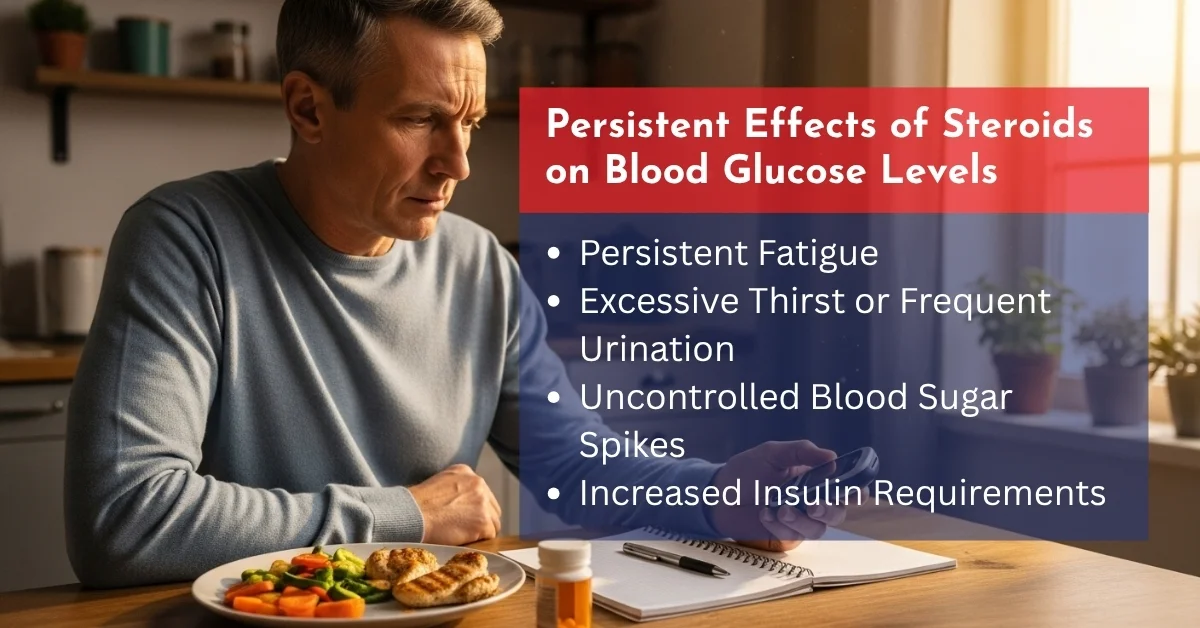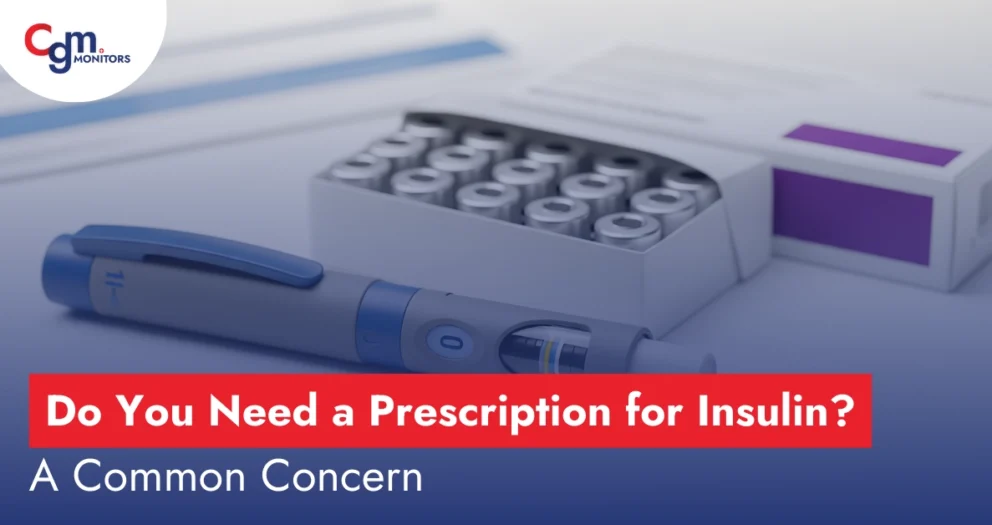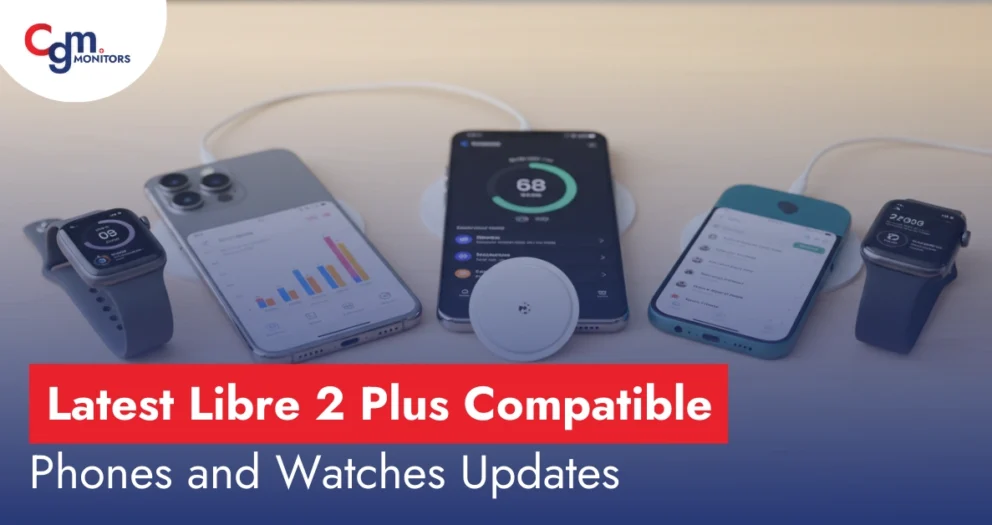Table of content
- Steroids Under Discussion
- Do Steroids Raise Blood Sugar Levels?
- Is My Steroid Dosage Too High?
- How Long Do the Effects Last?
- Can Steroids Cause Diabetes?
- Managing Blood Sugar While On Steroids
- Are Some Steroids “Safer” for Blood Sugar?
- Before Starting Steroids: Ask Your Doctor
- Persistent Effects of Steroids on Blood Glucose Levels
- Final Thoughts
Steroids are powerful medicines. Good for inflammation. Tough on blood sugar. However, if you’re diabetic—or even borderline—the question arises, ‘How long will steroids affect blood sugar?’
Let’s break it down. How do steroids like prednisone affect blood sugar? How long do those effects last? And most importantly, what can you do to manage it? Let’s cover all the concerning questions with proper answers through Cgm Monitors.
Steroids Under Discussion
We’re talking about corticosteroids, not anabolic steroids for bodybuilding. Medicines like prednisone, dexamethasone, and hydrocortisone mimic cortisol—a natural hormone that handles stress, immune response, and blood sugar.
However, when taken in higher-than-normal doses, they throw your glucose balance off. Especially if you already have diabetes—or are at risk (pre-diabetic).
Do Steroids Raise Blood Sugar Levels?
Yes. Absolutely. Steroids raise blood sugar levels by reducing your cells’ sensitivity to insulin. That means more glucose stays in your bloodstream, eventually leading to diabetes if not discontinued within a minimal period. This condition is known as steroid-induced hyperglycemia (a fancy term for steroid-triggered high blood sugar).
Not all steroids are equal. Some have a higher probability of inducing blood sugar than others, e.g., studies show that rosuvastatin has a higher risk of inducing blood sugar than pravastatin.
Is My Steroid Dosage Too High?
That depends on:
- The type of steroid
- How much you taking
- How long you on it
- And your health status
For example, prednisone and blood sugar levels are particularly sensitive in diabetics. Even short courses can impact your glucose levels.
How Long Do the Effects Last?
Steroids and blood sugar can stay in your system for days or even weeks. While the spike often starts within hours, your blood sugar may stay elevated long after your last dose—especially if the course was extended.
If you’re using steroids like prednisone for a few weeks or longer, glucose management becomes a daily concern.
Can Steroids Cause Diabetes?
Although rare, diabetes induced by steroids exists. Especially if you’re taking high doses for extended periods. Moreover, if you are prediabetic or have a strong family history, there are enhanced chances for steroids to raise blood sugar levels and tip you into type 2 diabetes.
Managing Blood Sugar While On Steroids
Following are some of the tips to manage blood sugar while on steroids:
- Check your blood sugar more often; a continuous glucose monitor (CGM) like Freestyle Libre 3 Plus Sensor may help.
- Use the lowest steroid dose for the shortest time possible.
- Adjust your insulin or medicines (talk to your doctor first!)
- Eat low-glycemic foods with fewer carbs and more fiber
- Stay active – even walking helps insulin work better
Are Some Steroids “Safer” for Blood Sugar?
It’s more about how and how much you take than which one. But still, some general patterns:
| Steroid | Impact on Blood Sugar | Duration of Effect |
| Prednisone | High | According to uhhospitals, it begins within 4 hr; lasts up to 12 hr; repeated doses lead to a multi-day effect. |
| Dexamethasone | High | Largest hyperglycemic effect; biological half-life 36–54 hours; effects may last 1–3 days or more |
| Hydrocortisone (oral) | Mild to moderate | Short‐acting; effects resolve within 8 – 12 hr |
| Prednisolone | Moderate to high | Biological half-life of 18–36 hours. Multi-hour to days with repeated dosing |
Also, IV and IM steroids (injected) can cause sharper spikes compared to oral steroids, but they usually wear off faster.
Before Starting Steroids: Ask Your Doctor
If you’re diabetic—or even borderline—don’t start steroids without a plan.
Here’s what to bring up:
- Will I need to change my meds?
- How often should I check my blood sugar?
- Can we try a lower dose or shorter course?
Still on fingersticks?
Check your eligibility for a CGM sensor or an automatic insulin delivery (AID) system with CGM Monitors and receive your supplies at your door without any delivery costs (within the USA).
Persistent Effects of Steroids on Blood Glucose Levels

Even after you stop taking corticosteroids, your glucose might take a few days to settle. Watch for:
- Unusual fatigue
- Increased thirst or urination
- Blood sugar spikes that won’t budge
- Needing more insulin than usual
Struggling with these symptoms could mean your current routine isn’t enough. It’s time to take control before it gets worse. Try the Dexcom G7 Sensor for real-time glucose tracking and better management.
Final Thoughts
Steroids such as corticosteroids are immunosuppressants and are usually administered to minimize severe health conditions, e.g., cardiac attacks. However, the way they work can make you insulin-resistant. This means steroid-induced blood sugar is possible, especially if higher doses are continued for a longer time span. To stay on the safe side, take a minimal dose for the least period.
Diabetics and even pre-diabetics on corticosteroids should keep their glucose levels under check and stay in touch with their doctors to make any changes in drug or dosage.
Disclaimer: This blog is for informational purposes only and does not constitute medical, legal, or professional advice. While we strive for accuracy, errors or omissions may occur.







Write a comment
Your email address will not be published. All fields are required